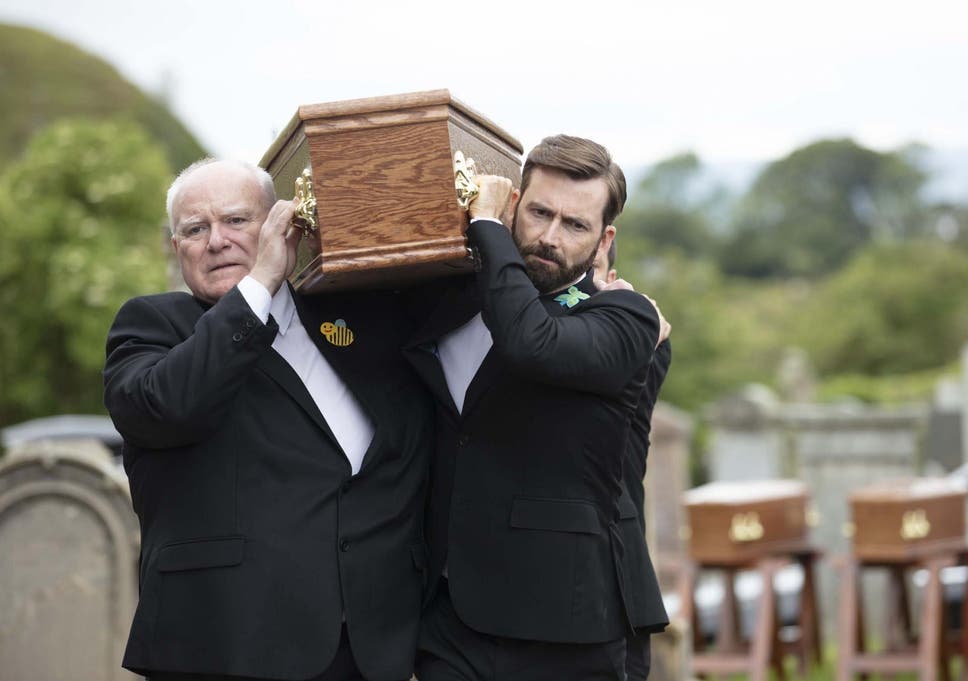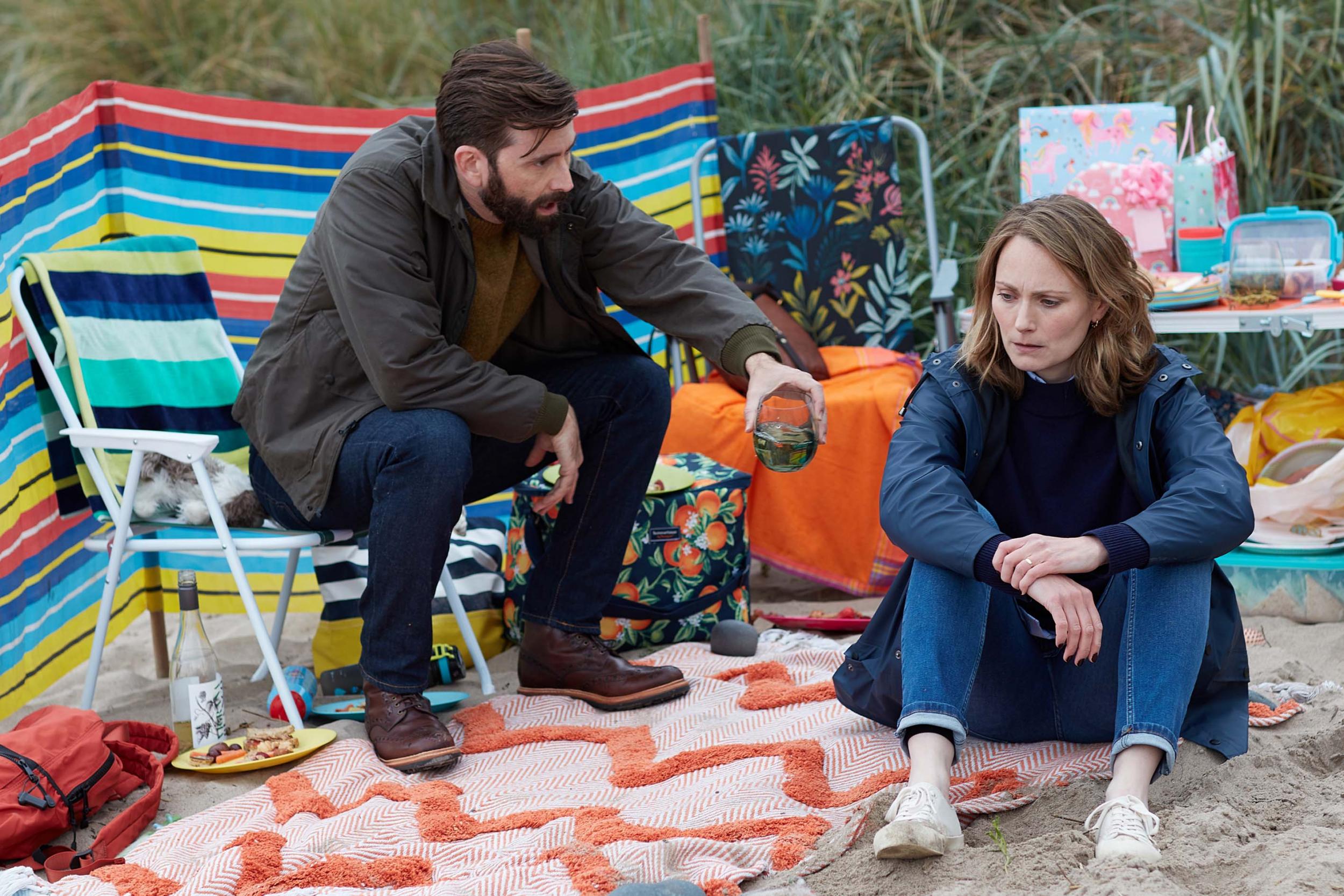
A confession: I am a true-crime addict. Podcasts, documentaries, books… From The Staircase to Serial via those cheaply made shows on channels way down the listings, I’ll happily devour them all.In truth, I’m sometimes a little troubled by how much I enjoy them, which is partly why I wanted to challenge the genre with my own crime drama, Deadwater Fell, starring David Tennant.
My husband doesn’t get the whole true-crime phenomenon. He calls it “ghouling”. And he’s right: there is a fair amount of ghoulishness involved. Luckily, I know I’m not the only one who is obsessed. Colleagues, friends, my mum – everyone’s talking about true crime. There is now a whole Sky channel dedicated to it. True-crime books have their own ever-growing section in bookshops. My Favourite Murder, the podcast hosted by American comedians Karen Kilgariff and Georgia Hardstark, is downloaded millions of times a month.
Why is it we are drawn to these stories? Why are we drawn to the examination of such horrible events?
Death, especially a violent one, is something all of us fear; for ourselves, for our loved ones. We have no control over how we will die. Maybe it’s this lack of control that makes us seek out death. Perhaps we’re looking at these events as a way of preparing ourselves for the inevitable.
I’m fascinated by the motives of these killers – what drove them to commit such a terrible act? Often a murderer will be described by neighbours as someone quiet. Unassuming. “You’d never know,” they’ll say. Then once the murderer’s deeds are uncovered, they quickly go from the person next door to a full-blown monster.
A 2010 study published by Social Psychological and Personality Science found that women are the primary consumers of true crime. There’s a theory that there’s an element of self-preservation around it: women are scared of being attacked, this gives us a way to feel in control. The victims we see in true-crime shows are almost always women. And that’s where my unease at this obsession comes in: it lies with those women.
I know their names. I can see their faces – in prom pictures or at their weddings. All women immortalised through widely covered true-crime series. But that’s all they are: smiling faces in faded photographs. I couldn’t tell you what they enjoyed doing on an evening out with friends. What music they liked. What they stood for politically. Who they loved. What bugged the hell out of them.
Victims become two-dimensional. A fleeting image sandwiched between crime-scene photographs and interviews with their alleged murderer.
Families of victims often fade into the background too – no doubt because they don’t want to rake over their own trauma or seemingly exploit their loved one’s death. And so the telling often becomes one-sided. The victim is relegated to the sidelines.
This was the starting point for my new drama. I wanted to do something akin to a documentary – quiet and forensic – but one where the victims had a voice.

Deadwater Fell is an examination of a completely fictional tragic event in a small Scottish village. It follows GP Tom Kendrick (Tennant) and his wife Kate (Anna Madeley). One night, their house burns to the ground and Kate and her three children are found dead. Tom survives and is rushed to hospital. But it soon becomes apparent that the fire is not all it seems and that something unspeakable has happened.
The series is observational and understated – I wanted the focus to be on the commonplace and everyday. Like most crime drama, there are suspects and clues. There are arrests and interviews. But they are played out through the prism of ordinary people.
It was important for me that the victims didn’t become cardboard cutouts. So we see their story in flashback. Kate is not perfect. She could be perceived to drink too much, to swear too much and has a habit of rubbing people up the wrong way. But then, don’t we all from time to time?
In the present, Kate is kept alive through her husband Tom and best friend Jess (Cush Jumbo). Jess is our way in to the story. She’s determined not only to discover the truth about her friend’s death, but to keep her memory – in all its sweary, everyday glory – alive.
When I started writing Deadwater Fell, it was mainly an attempt to capture the style of true crime. But it soon became much more than that. It’s about how we look at other people’s lives and think they have it all when the truth is, no one knows what goes on behind closed doors – even in the lives of those closest to us.
Deadwater Fell is about more than that one night of tragedy. It’s about the trials and tribulations many of us may experience in one way or another, whether it’s living in a fractured family after divorce, or trying to have a baby through IVF, or grappling with mental health problems, or presenting a perfect front in our Instagram-ready world.
I wanted it to be a story about a community we might know and families we might be friends with. Without me giving too much away, this isn’t about monsters. It’s about humans and what they are capable of – both the heroic and the incomprehensible. And it’s about victims who deserve to be remembered as more than a smiling face in a faded photograph.
Deadwater Fell starts on Friday 10 January on Channel 4 at 9pm







